Top 10 Destinations for Queer Digital Nomads
In an era where people have the opportunity to work completely location-independent; the idea of becoming a digital nomad has become a compelling lifestyle choice for many. It should come as no surprise, queer people who are already going against societal expectations are more likely to explore this option. Defined by their ability to work remotely while traveling, digital nomads are reshaping the traditional, outdated notion that life is work or wanderlust.
In this article, we chatted with some experienced digital nomads and explored the key attributes that make a destination ideal for this unique lifestyle. Important factors include fast, reliable internet access, vibrant coworking spaces, and access to community and location. Uncover some of the top destinations for queer digital nomads and learn what makes these destinations stand out because narrowing down your choices can be difficult when the whole world is your office.
Editor’s Note: When choosing the ideal place to start your digital nomad life, you should be diligent about making sure the desired destination(s) ranks high when it comes to LGBTQ+ rights and safety in addition to how the place(s) fits your interests.
Argentina
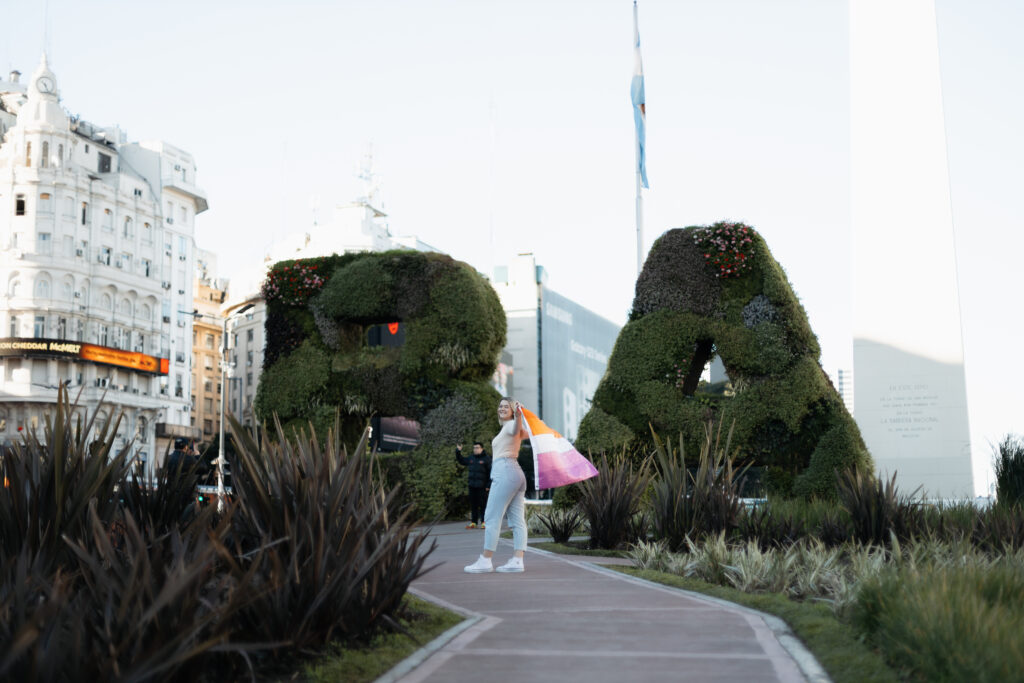
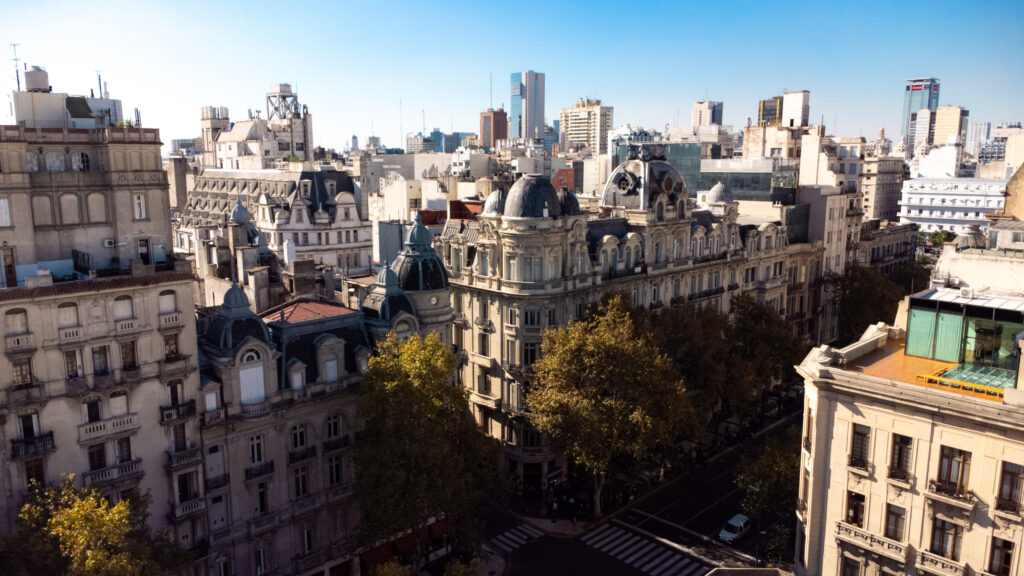
Queer digital nomad and the powerhouse content creator behind The Lesbian Passport, Alyssa Leaton said, “I most often hear top-ranking digital nomad destinations in parts of Europe and Southeast Asia, however, believe that Latin America is an overlooked gem with rich culture, work-life balance, and expansive, diverse nature around for the hours not spent behind the screen. Two of my favorite cities with the best logistics would be Medellin, Colombia, and Buenos Aires, Argentina; although Buenos Aires takes the gold in my eye.”
Buenos Aires
In the words of Leaton, Buenos Aires is perfect for folks looking for a more slow-paced, authentic, culturally rich LGBTQ+-friendly destination. There’s no lack of queer spaces and unique atmospheres for travelers of all interests. It’s a great option and homebase especially if you want to travel domestically on weekends and explore beyond Buenos Aires. Argentina spans across many regions and climates, including the Atlantic Coastline, the Iguazü waterfalls at the Argentina-Brazil border, the northern Salta region, southern Patagonia, and the lakes region. Coffee shops are integrated into Argentine culture, especially with the concept of merienda (a dish or snack smaller than a full traditional “full meal”), so you can find an abundance throughout the Buenos Aires neighborhoods open as late as 8 to 10 pm.
Colombia
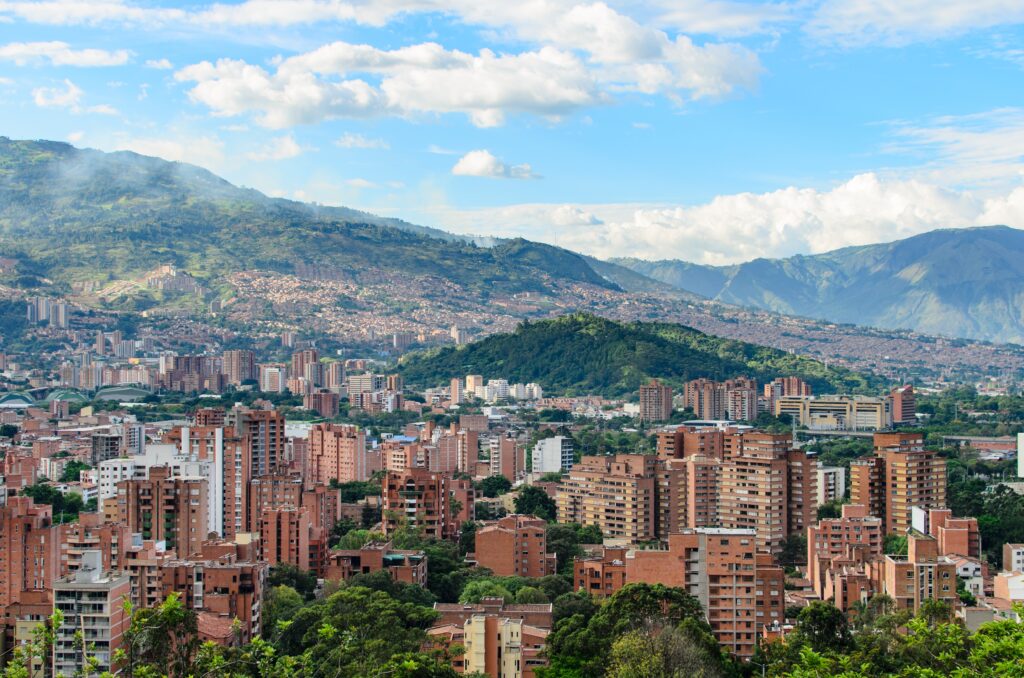
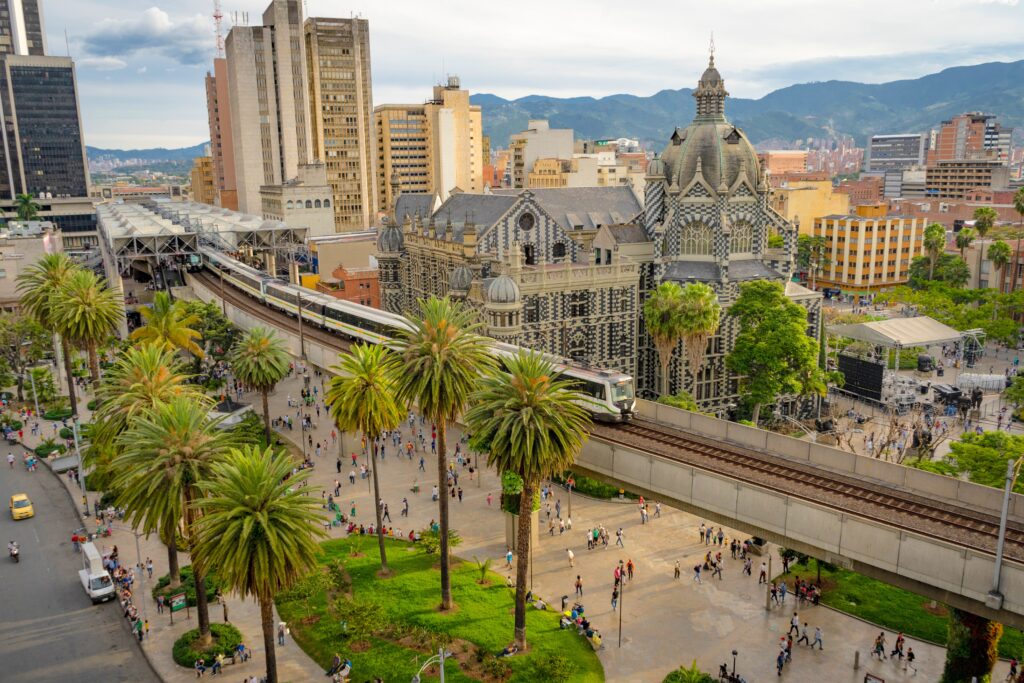
Colombia captivates digital nomads with its diverse landscapes, vibrant culture, and affordable living. Boasting reliable internet, a growing coworking scene, and welcoming communities, cities like Medellin and Bogotá provide an ideal backdrop for remote work, allowing nomads to immerse themselves in the country’s rich tapestry while they stay connected. There are also frequent and low-cost flights connecting Colombia to much of the US, which makes it convenient for any Americans looking to make semi-regular trips home.
Medellin
Medellin, Colombia, is a digital nomad paradise. With tremendous growth in both expats and tourism in recent years; it’s easier than ever to seamlessly blend work and play. Surrounded by lush mountains, the city offers a temperate climate, affordable living, and a vibrant culture. With a growing coworking scene, reliable internet, and welcoming locals, Medellin creates an ideal backdrop for digital nomads to live and work.
For more on Queer life in Colombia check out this Vacationer of the Week profile with Juan David Borja, the Operations Manager for OUT in Colombia, an LGBTQ+ travel company.
Portugal
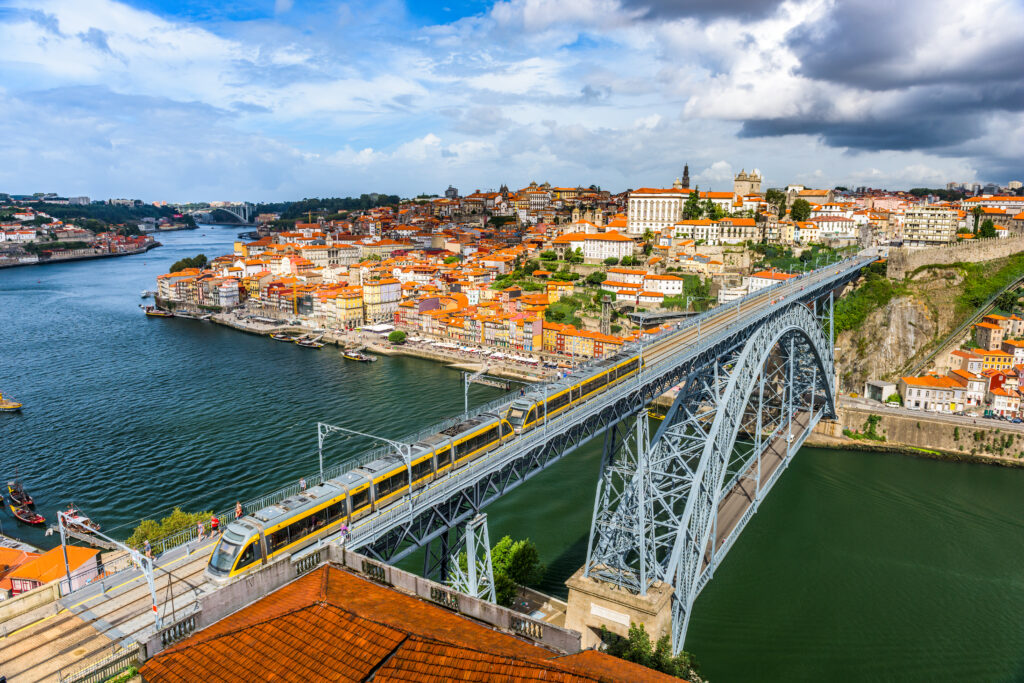
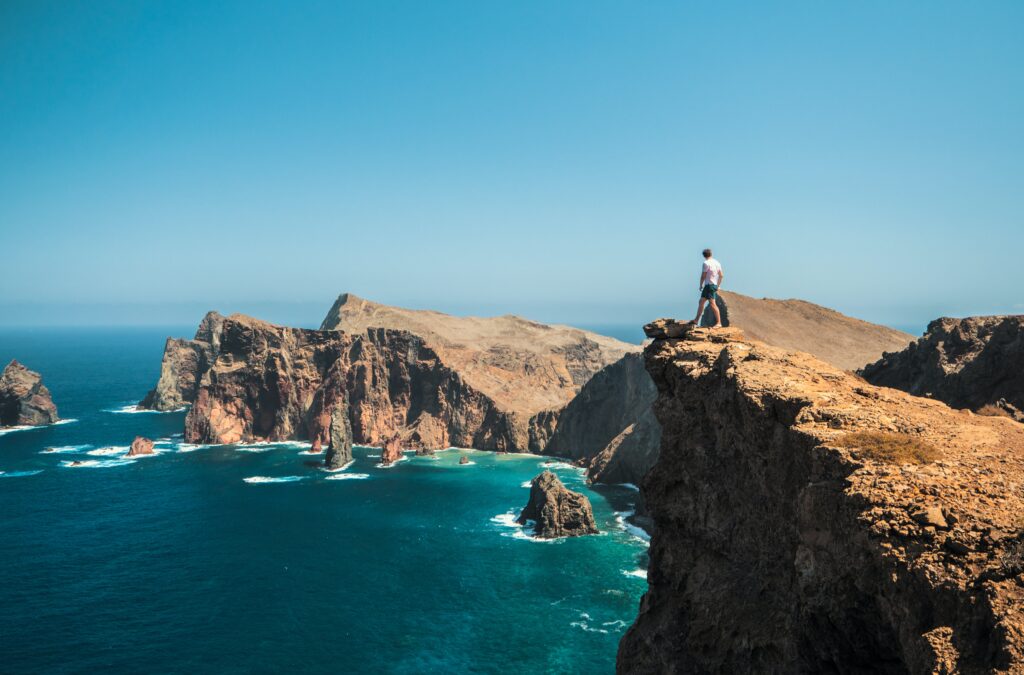
Portugal has consistently been ranked as one of the top destinations for LGBTQ+ travelers. All of the qualities like vibrant cities, diverse landscapes, fresh food, and incredible wine plus some of the lowest cost of living in Western Europe help Portugal stand out as a beacon for Queer digital nomads. Portugal embraces diversity, which makes it an ideal haven for those seeking both work flexibility and acceptance. Narrowing down cities here is tough. While Porto and Maderia are incredible, Lisbon and Peniche could just as easily be highlighted.
Porto
Porto captivates with its historic charm, winding streets, and Douro River views. It serves as a great option for travelers looking for a slightly slower pace than what can be found in Lisbon. Also, in recent years there is a lot more English spoken here which helps build community and navigate tasks such as paying bills in a foreign country. Want to learn more about Porto? Take a look at Vacationer’s Queer Porto Travel Guide.
Maderia
If off-hours spent in nature is what excites you, Madeira might be the city for you. The incredible landscape cannot be understated. The laid-back beach town with a mild climate serves as a serene escape for nature lovers while still having a small expat community and reliable internet. The popular areas to live in are Funchal, Porto Santo for the beaches, and Ponto do Sol for its Digital Nomad Village, a collaboration with the regional government to build a community for digital nomads to thrive.
Thailand
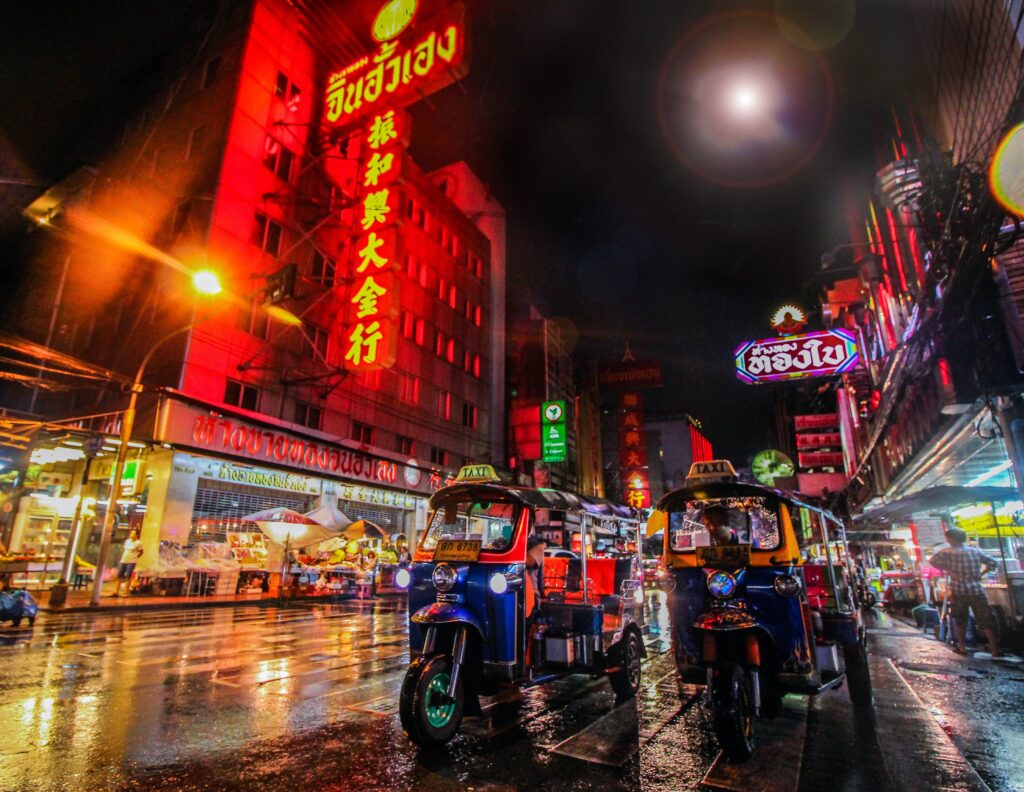
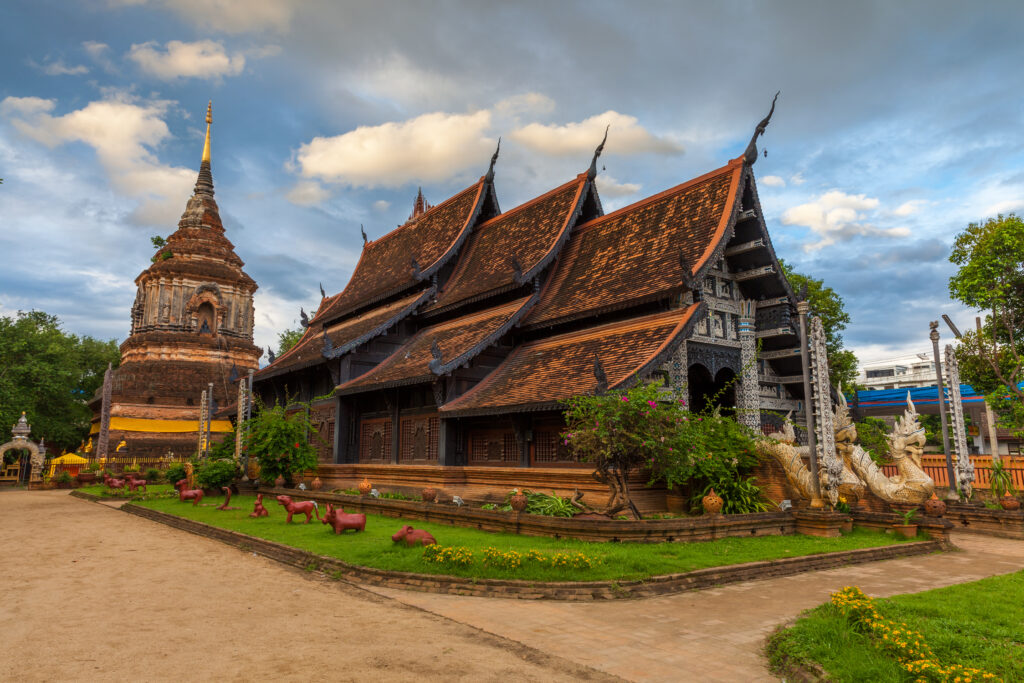
Thailand is one of the most popular digital nomad hubs in the world for good reason. Known for its diverse landscape (mountainous north, beachy south, and bustling capital city), delicious food, and low cost of living. For CEO and queer travel veteran Meg Ten Eyck of EveryQueer, Thailand is as good as it gets for queer digital nomads. “Thailand is one of the most LGBTQ+ affirming destinations in the world because of their ancient cultural customs around multiple genders. Digital nomads in Thailand will see people of various gender expressions everywhere.”
Ten Eyck added, “While Thailand is not a utopian society, they are light years ahead of many destinations in terms of acceptance for people who do not conform to traditional gender presentation. This makes Thailand a beautiful option for people who want the digital nomad experience but may be concerned about how their gender will be respected by local people.”
Long-term digital nomad and half of the Proudly Nomdic couple, Jose Martinez had a similarly wonderful experience in Thailand. In his words, he said, “The best part of living and traveling through Thailand was knowing that I could be my true self, hold hands with my partner, all while knowing that we were welcomed and accepted by the people who call Thailand home.”
Bangkok
Bangkok is a busy, energetic city that is also the country’s center for LGBTQ+ inclusivity. From vibrant Pride events and diverse entertainment venues to gay-friendly neighborhoods like Silom, Bangkok is as queer-friendly as it gets. The city also has a wonderful third-wave coffee scene and tons of coworking spaces. Even if you have a comfy place to work in your accommodation, you can get out and work at a shared workspace, which is a great way to build connections.
Chiang Mai
No matter where you are in Chiang Mai, you’re close to a cafe with solid Wi-Fi. Seriously, this city is a dream for remote workers because it’s surrounded by lush jungles and Buddhist temples. Before being a digital nomad was hip, employed foreign creatives flocked to Chiang Mai to connect with like-minded travelers. Chiang Mai is also widely considered to be the safest city in Southeast Asia making it a popular choice with American expats. The nearby Chiang Mai International Airport makes this city a great base for exploring more of Southeast Asia.
Mexico
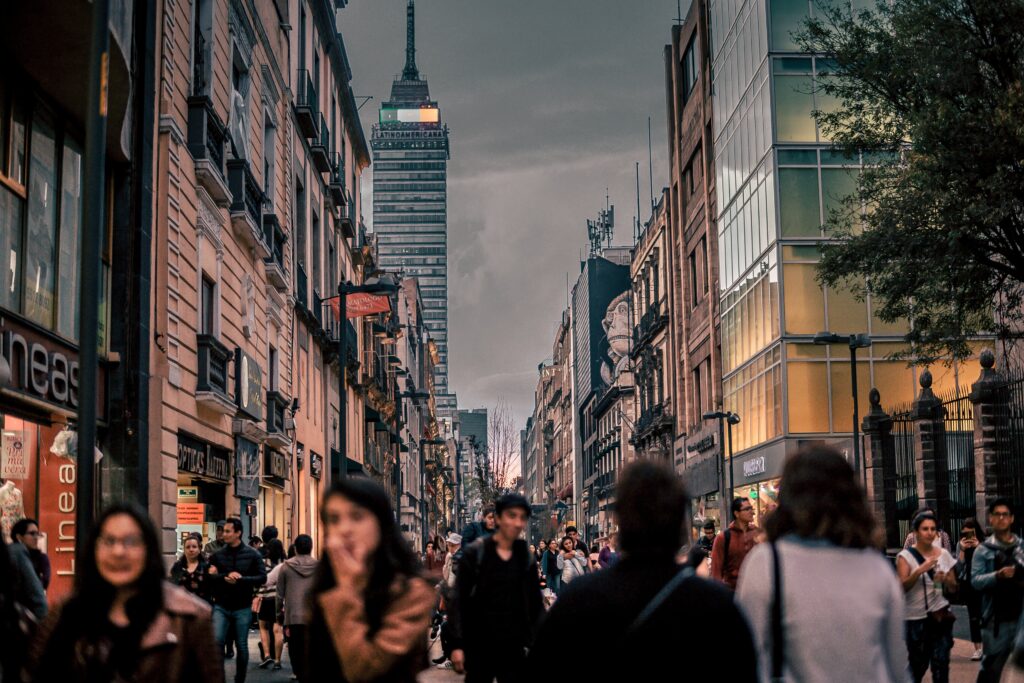
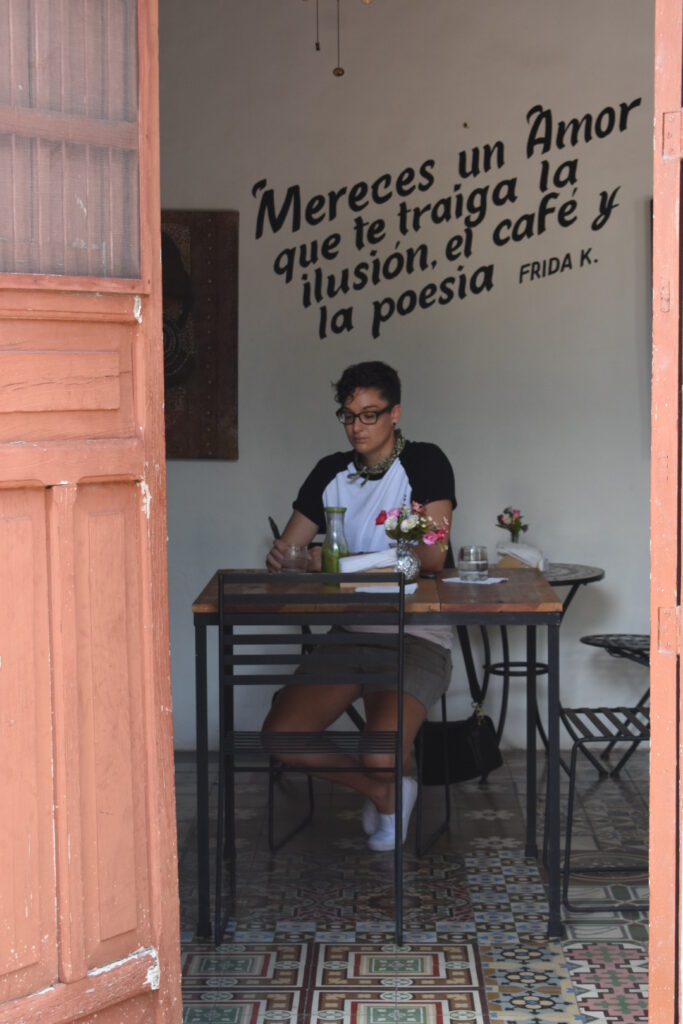
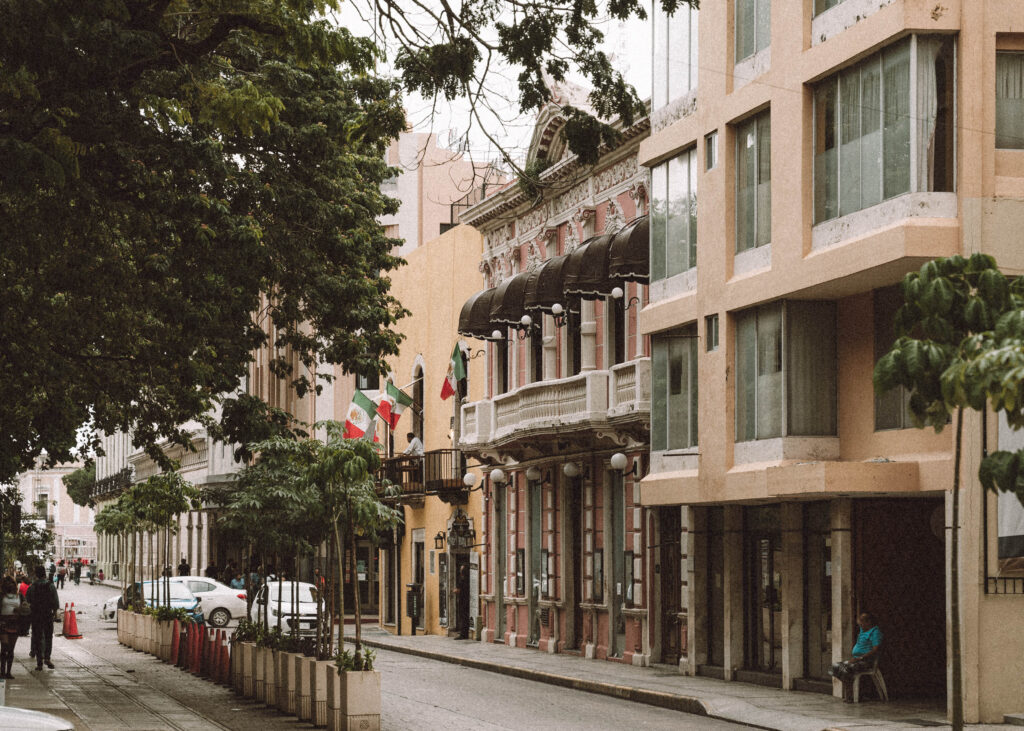
Mexico is always a favorite. With beaches, energetic cities, welcoming culture, and incredible food there is so much to love. The country is an awesome choice for digital nomads, particularly Americans looking to start their adventure of living and working on the road. Not only is Mexico a short flight back to the US, but it is also in the same time zone, which makes things easier for employees who can work remotely but are required to work specific hours.
Maartje Hensen, the author of the queer travel guide, Pride Atlas, keeps returning to Mexico and Thailand. Hensen said, “Both counties offer such diversity in landscapes and have a pleasant climate year-round along with amazing food and welcoming people. Mexico offers a six-month tourist visa for most Europeans and Americans, making it easier to stay there longer.”
Mexico City
Mexico City combines dynamic energy with affordability. Despite its size, the city maintains a low cost of living, an attractive reason for remote workers to relocate. With a major airport, it serves as a gateway to explore Mexico and South America. The expansive culinary scene ensures endless dining adventures, while numerous coffee shops and diverse shared workspaces cater to various preferences. Explore neighborhoods like La Condesa, which offers a hub for expats. Adjacent to La Condesa, Zona Rosa is home to the city’s LGBTQ nightlife, making this neighborhood a multifaceted haven for both work and play.
Merida
For me, a digital nomad for more than five years, I can’t get enough of Merida. It is a quiet historic city with stunning architecture and delicious Yucatecan food. The days are usually hot, so I find it easy to hunker down and work in the air conditioning and then explore in the evenings. Some of the most beautiful Airbnb rentals in Merida offer deep discounts for booking an entire month. There is also an amazing community of retired expats here that makes finding people to connect with easy. Several active Facebook groups serve as a great way to meet new people, including Expat Gay Guys Happy Hour of Merida.
South Korea
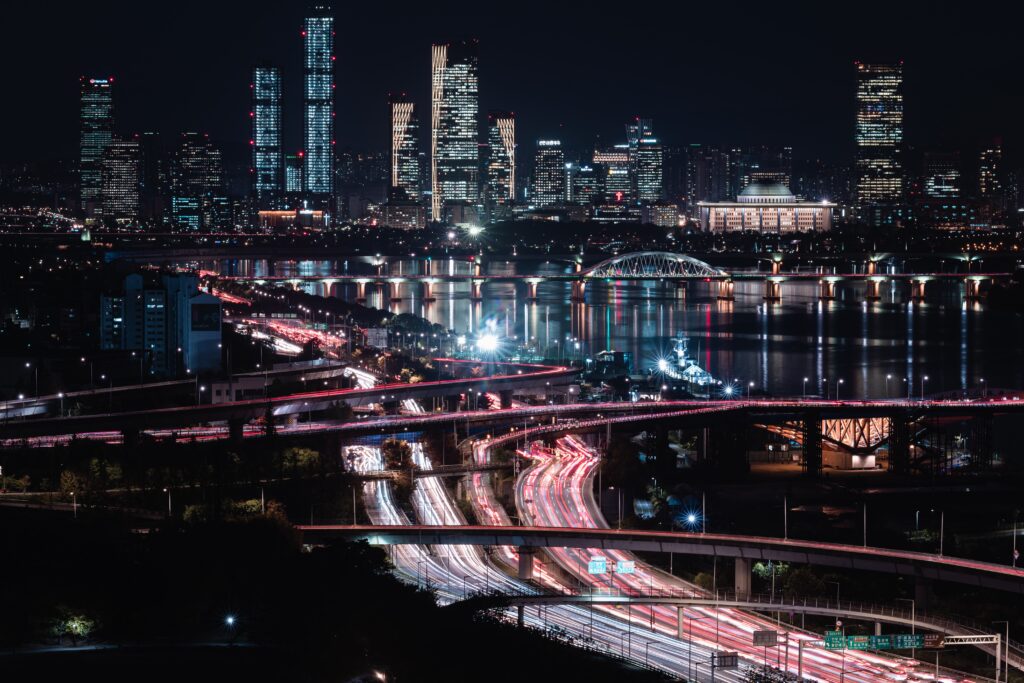

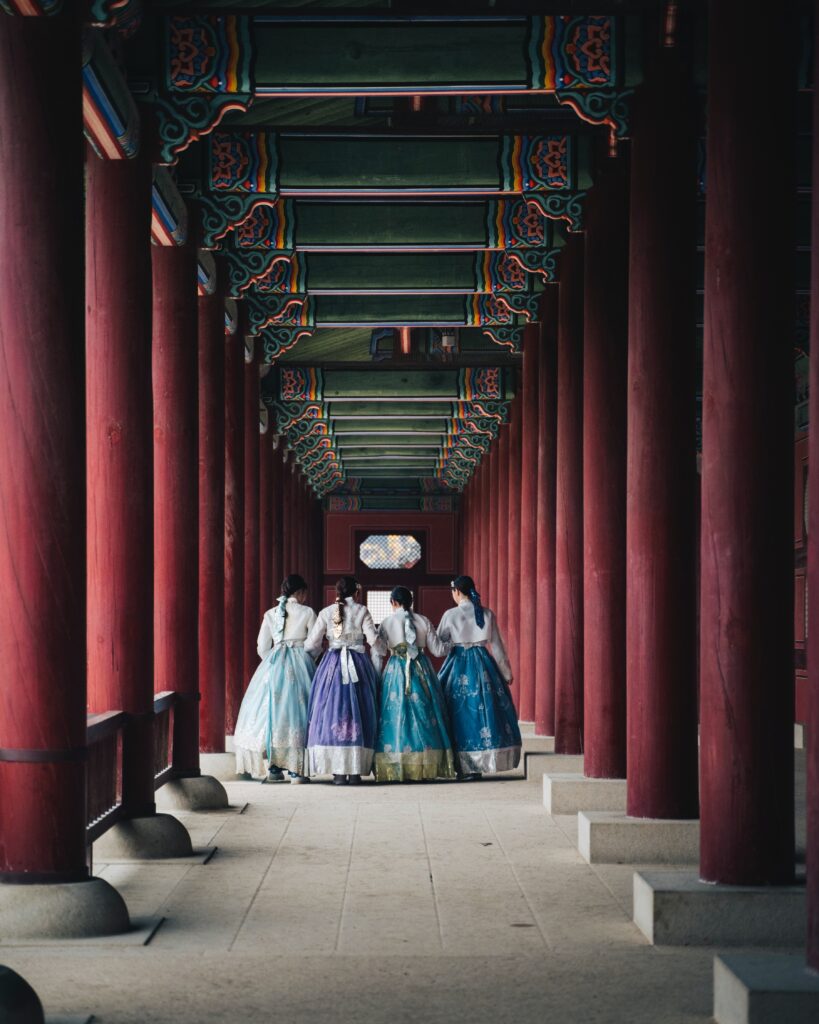
My time as a digital nomad started in South Korea in the spring of 2014. I was based in Ansan-si, a smaller city outside of Seoul. In recent years Seoul has become a rising digital nomad hub with its rapid internet, tech advancements, and large capital city with international flair. While pricier, it offers incredible cuisine and a vibrant cafe culture. Short-term leases are challenging, but Airbnb fills the gap. Seoul claims the world’s fastest internet, and in 2024, a digital nomad visa will extend stays to two years. The city’s safety and respect for belongings make it an idyllic workspace for nomads.
Philippines
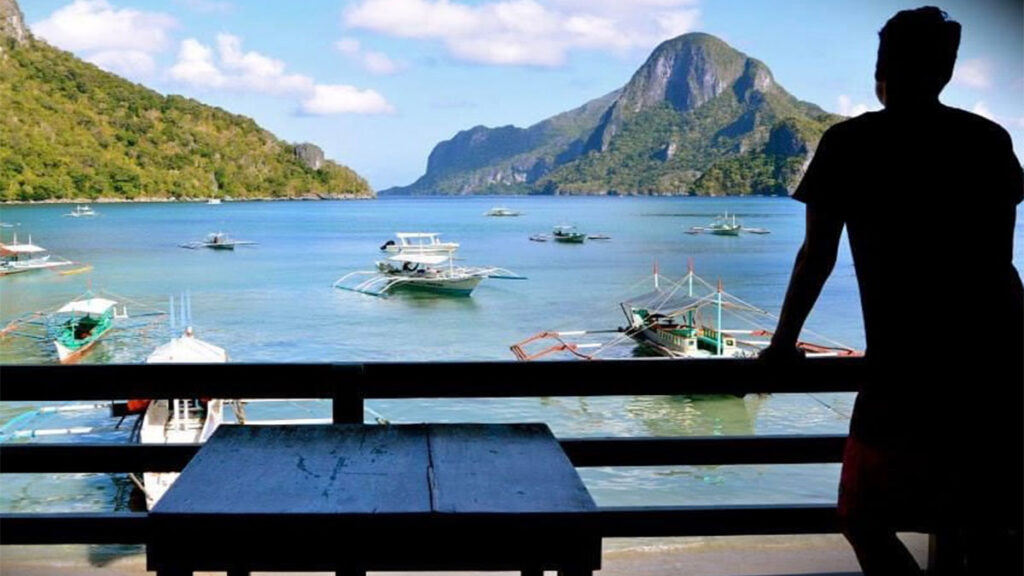
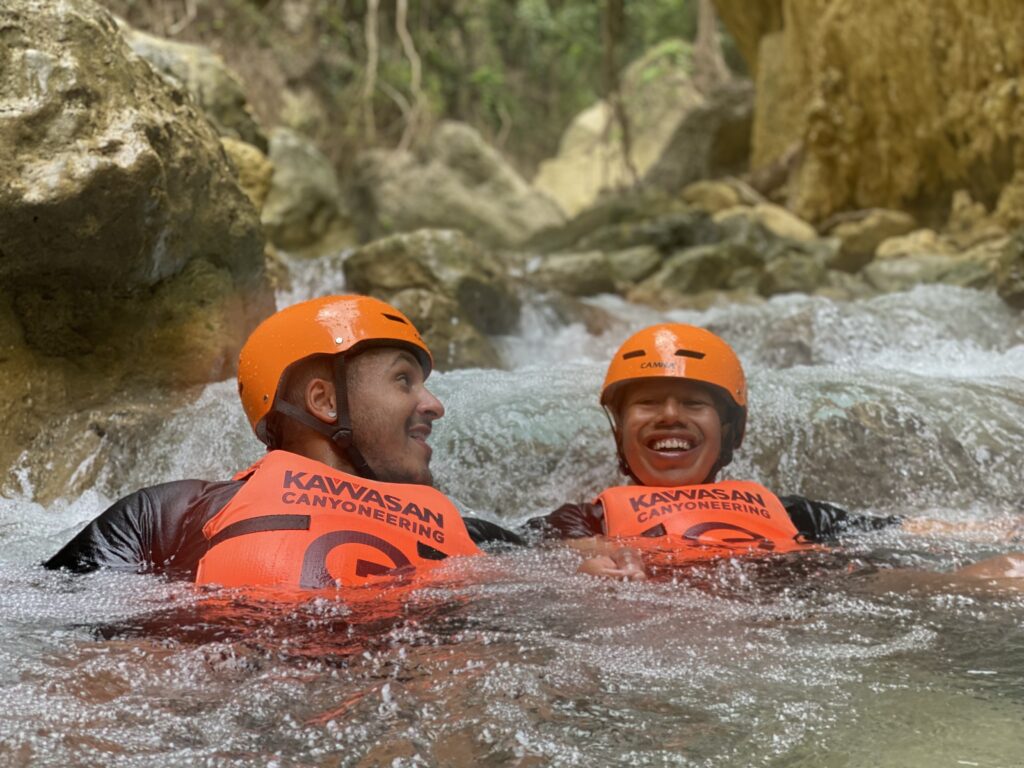
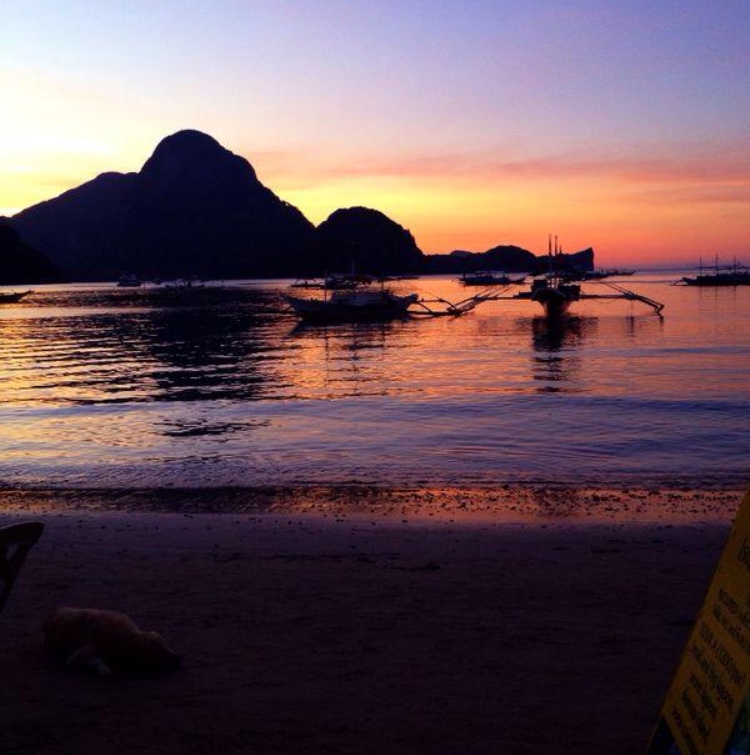
For queer digital nomads, Will Luttrell and Jose Martinez (@ProudlyNomadic), the Philippines – known for its low cost of living, bright blue water, and lush coastline – surprised them the most! It’s a can’t-miss destination for queer digital nomads who need that extra level of LGBTQ+ acceptance. Luttrell and Martinez found community at every turn even though the Philippines is a deeply Catholic country. Seeing LGBTQ+ couples is a common occurrence in Cebu’s small mountain towns and the crowded city of Manilla.
“The truth is the Filipino people were the kindest, most hospitable people in the entire world. And your sexuality was not important. The Philippines is a country that might sound iffy on paper for LGBTQ+ but the reality is it is probably one of the safest, easiest, most incredible destinations you could want,” said Luttrell. While the outer islands are a beautiful place for weekend trips, the Wi-Fi can be spotty so making a city your homebase is probably the best option for work efficiency.
Cebu
While smaller than Manilla, the central location and dependable Wi-Fi also make the Philippine Island of Cebu an ideal location for digital nomads. Cebu has a strong expat community, and it has become a popular spot for young nomads taking advantage of the affordable prices. Nomads Hub is a popular space that doubles as a working and living space. If you’re looking for easy access to restaurants, cafes, and coworking spaces; you should consider looking for an apartment in Cebu City. Head to Lapu-Lapu for work and to have easy access to beaches and dive spots. It’s worth checking out!
Check out a candid interview with a Gen Z digital nomad who offers her perspective on moving from LA to Australia! Vacationers can also get inspired and learn more from firsthand experiences of LGBTQ+ Americans currently living in Mexico, Canada, Spain, and Portugal.

